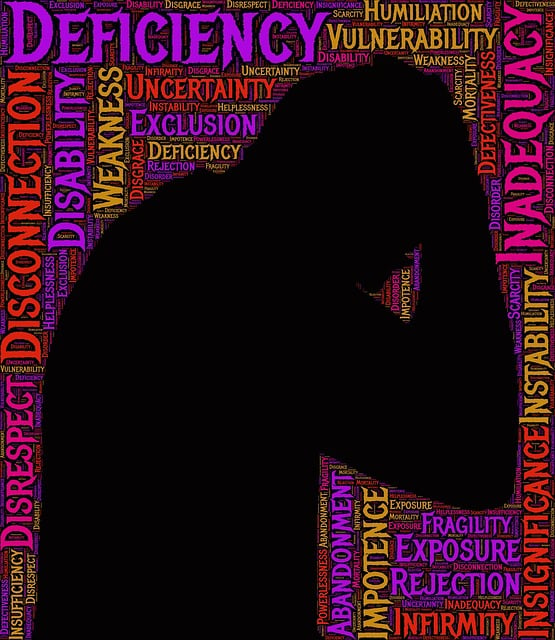Louisville Psychosis Therapy offers a comprehensive approach to addressing substance abuse, focusing on early intervention, cultural competency, and holistic care. By identifying personal risk factors through journaling and mental health education, individuals can proactively manage addiction. This program combines psychological healing with lifestyle changes like exercise and stress reduction, prioritizing both client and provider well-being. A robust support system, including professional guidance and community engagement, enhances recovery outcomes, emphasizing the interconnectedness of mental health and overall wellness, as seen through Louisville Psychosis Therapy's specialized services.
Substance abuse poses significant risks, affecting physical and mental health, relationships, and overall well-being. Understanding these dangers is the first step towards change. This article explores comprehensive risk reduction strategies, from identifying personal vulnerabilities to adopting lifestyle changes. We delve into the transformative power of Louisville Psychosis Therapy, offering a tailored approach to healing. Additionally, we emphasize the importance of support systems and professional help in navigating the path to recovery and sustaining long-term well-being.
- Understanding Substance Abuse and Its Risks
- Identifying Personal Risk Factors
- Louisville Psychosis Therapy: A Comprehensive Approach
- Lifestyle Changes for Mitigating Risks
- Support Systems and Professional Help
Understanding Substance Abuse and Its Risks

Substance abuse is a complex issue that involves the harmful use of drugs or alcohol, leading to significant impairment in an individual’s life. It can range from recreational use to full-blown addiction and often carries severe physical, mental, and social consequences. Understanding this problem is the first step towards effective risk reduction. Substance abuse disorders impact not just the person struggling but also their family, community, and broader society.
In Louisville, psychosis therapy plays a pivotal role in addressing these challenges. This form of treatment helps individuals manage severe mental health conditions, including substance use disorders and co-occurring disorders such as depression or anxiety. Additionally, promoting burnout prevention and self-esteem improvement among those at risk can be life-saving. Healthcare providers must also undergo cultural competency training to effectively assist diverse populations affected by substance abuse, ensuring inclusive and compassionate care.
Identifying Personal Risk Factors

Identifying Personal Risk Factors is a crucial step in developing effective risk reduction strategies for substance abuse. Louisville Psychosis Therapy offers guidance and support to help individuals recognize their unique triggers and vulnerabilities. By understanding personal risk factors, such as history of trauma, genetic predisposition, or past substance misuse, individuals can begin tailoring proactive measures to mitigate potential challenges. This process involves self-reflection and open communication with mental health professionals who can provide specialized Stress Reduction Methods and Mood Management techniques.
One powerful tool in this journey is Mental Wellness Journaling Exercise Guidance. Keeping a journal allows individuals to track their emotions, thoughts, and behaviors, identifying patterns that may contribute to substance abuse risks. Through regular journaling practice, individuals gain valuable insights into their mental health landscape, empowering them to make informed decisions about their well-being. This proactive approach, coupled with professional guidance, equips Louisville Psychosis Therapy clients with essential tools to navigate and overcome personal risk factors associated with substance abuse.
Louisville Psychosis Therapy: A Comprehensive Approach

Louisville Psychosis Therapy represents a comprehensive approach to addressing substance abuse issues, focusing on both the psychological and emotional aspects of recovery. This strategy goes beyond mere detoxification by integrating mental health education programs designed to equip individuals with coping mechanisms for stress and triggers. By combining these educational elements with trauma support services, Louisville Psychosis Therapy aims to address underlying causes often linked to substance misuse.
The program also emphasizes burnout prevention strategies for healthcare providers, ensuring that those dedicated to helping others remain resilient and effectively supported themselves. This holistic approach not only enhances the quality of care but also fosters a sustainable recovery environment, acknowledging that mental health is integral to overall well-being.
Lifestyle Changes for Mitigating Risks

Making lifestyle changes can significantly mitigate risks associated with substance abuse. This includes adopting healthy habits such as regular exercise, balanced nutrition, and sufficient sleep, which have been proven to reduce cravings and improve overall well-being. Engaging in activities that promote stress reduction methods, like mindfulness meditation or yoga, can also help manage anxiety relief and emotional triggers that may lead to substance use.
Additionally, building empathy within oneself and others is a powerful strategy. This involves cultivating understanding and compassion, which can foster supportive relationships and reduce social isolation—a key factor in substance abuse risk. Louisville psychosis therapy programs often emphasize these lifestyle changes as part of their comprehensive approach to helping individuals overcome addiction and build resilience against future risks.
Support Systems and Professional Help

Building a strong support system is a crucial component of any substance abuse risk reduction strategy. This includes reaching out to friends and family who can offer unwavering emotional support, as well as seeking professional help from therapists or counselors specializing in addiction. Louisville psychosis therapy centers provide a safe space for individuals to explore the root causes of their substance use while learning effective coping mechanisms. Through individual or group therapy sessions, clients develop empathy building strategies, enhance emotional regulation skills, and gain insights into their personal triggers, all of which are essential tools in managing cravings and preventing relapse.
In addition to traditional therapy, Louisville-based organizations often offer stress management workshops designed to equip individuals with practical tools for navigating life’s challenges without resorting to substances. These workshops teach valuable techniques for emotional regulation, mindfulness exercises, and healthy coping mechanisms that can significantly reduce the risk of substance abuse. By combining professional help with a strong support network, individuals have the best chance at overcoming addiction and maintaining long-term recovery.
Substance abuse poses significant risks, but understanding personal vulnerabilities and employing effective strategies can significantly reduce these dangers. By combining therapeutic approaches like Louisville Psychosis Therapy with lifestyle modifications, individuals can effectively mitigate risks associated with substance use. Building strong support systems and seeking professional help are crucial steps towards a healthier, safer future.














